Mental math skills Addition Worksheets for Ages 3-7
6 filtered results
-
From - To
Welcome to our Mental Math Skills Addition Worksheets for Ages 3-7! These engaging and interactive worksheets are designed to enhance early math skills through fun and challenging addition activities. Perfect for children aged 3 to 7, our resources foster a love for learning while building essential mental math abilities. With vibrant illustrations and age-appropriate scenarios, kids will enjoy solving addition problems that encourage critical thinking and problem-solving skills. Ideal for both at-home practice and classroom use, our worksheets empower young learners to develop confidence and proficiency in mathematics. Help your child excel in mental math and lay a strong foundation for future learning today!
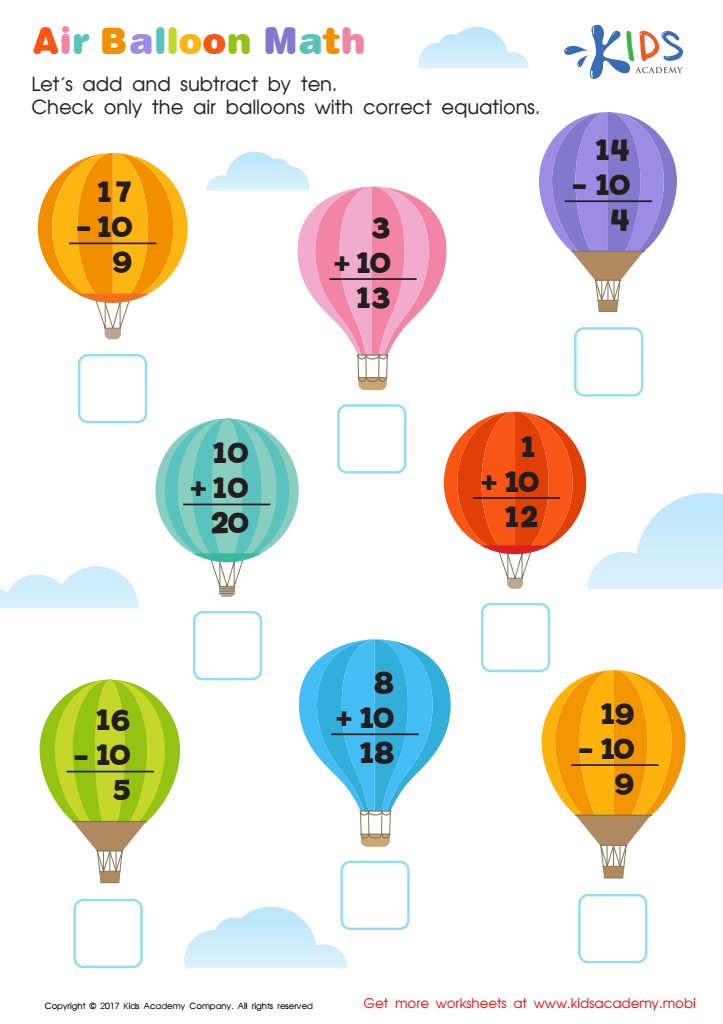

Air Balloon Math Worksheet
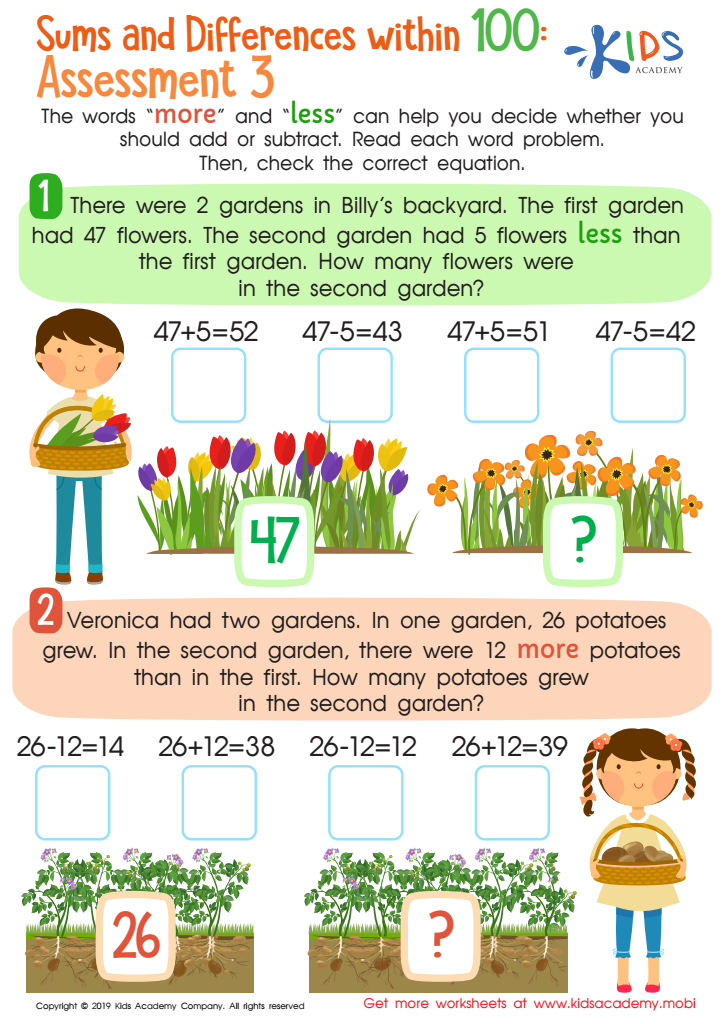

Sums and Differences Within 1 - Assessment 1 Worksheet
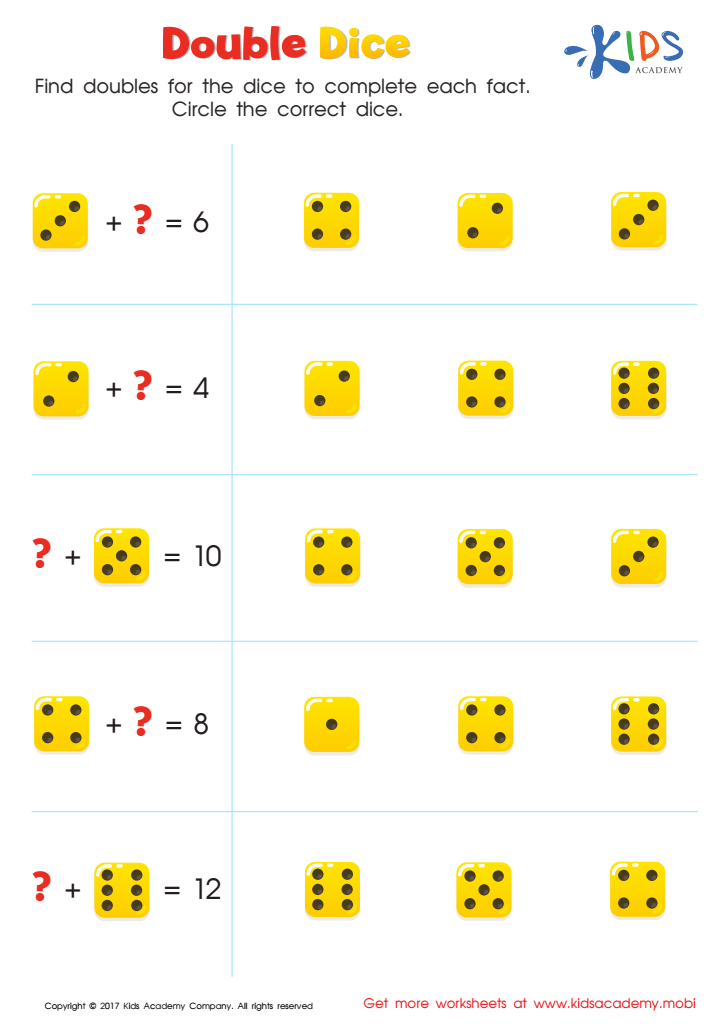

Addition Facts: Double Dice Worksheet
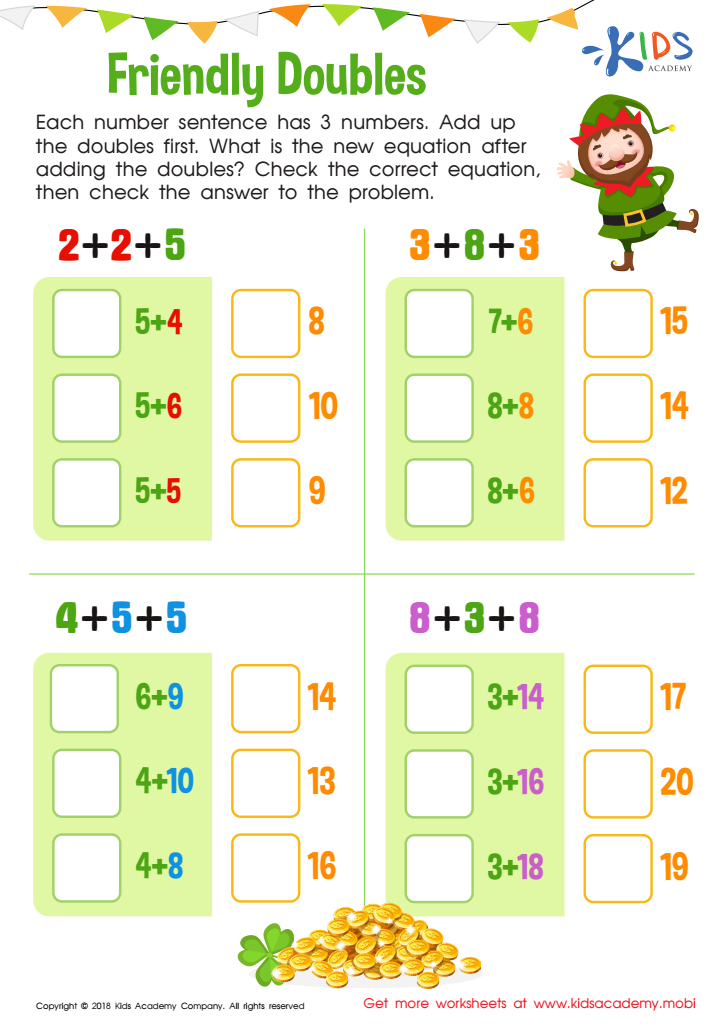

Friendly Doubles Worksheet
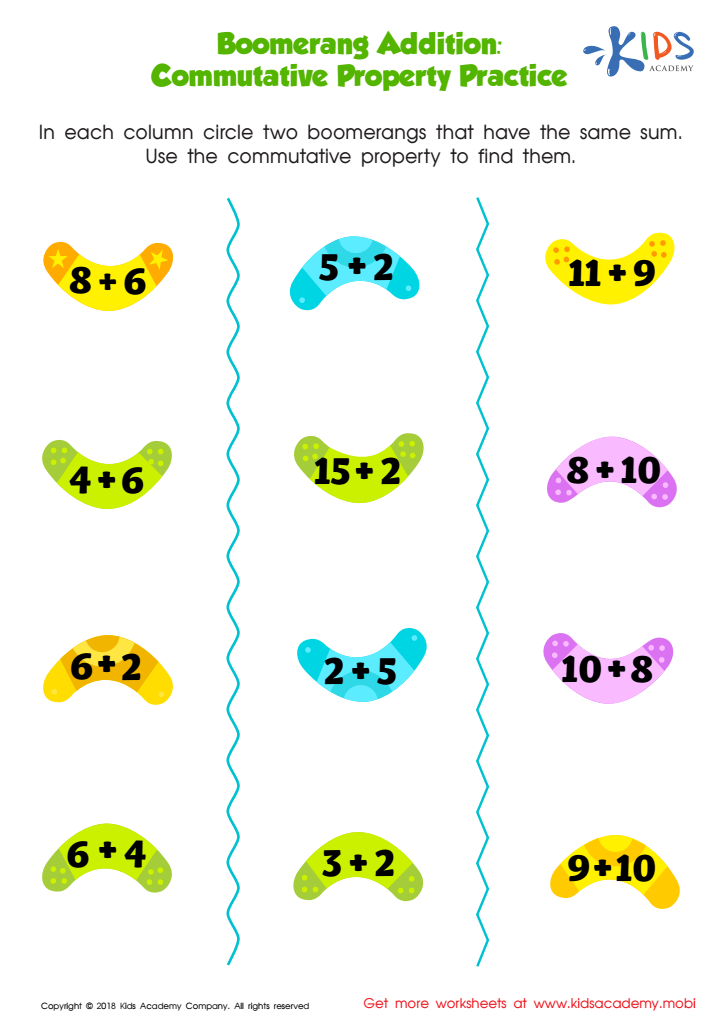

Boomerang Addition Worksheet
Mental math skills, particularly in addition, are foundational for young learners aged 3-7. Parents and teachers should prioritize this skill development for several reasons. Firstly, mental math enhances number sense, allowing children to understand and manipulate numbers in their everyday lives. This fundamental understanding cultivates confidence in their mathematical abilities, making them more eager to participate in academic challenges.
Additionally, mastering mental addition promotes cognitive skills, such as critical thinking and problem-solving. Children learn to analyze situations, recognize patterns, and devise solutions, skills that extend beyond math into other subject areas and everyday decision-making.
Early proficiency in mental math also significantly impacts future learning. Subjects such as geometry, algebra, and even science draw on a child’s ability to perform mental calculations quickly and accurately. Establishing a strong mathematical foundation early on prepares them for more complex concepts later in life.
Lastly, engaging with mental math can be fun and interactive, creating enjoyable learning experiences that foster a positive attitude towards mathematics. By incorporating mental addition into teaching at an early age, we empower children with essential skills they'll utilize throughout their academic journey and beyond.
 Assign to My Students
Assign to My Students








.jpg)














